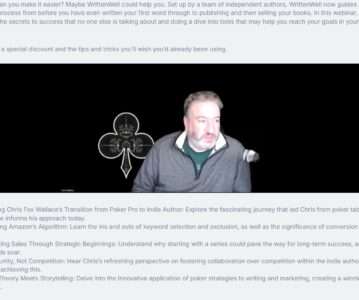 Ellis Prybylski Talks Editing
Ellis Prybylski Talks Editing
We had a great talk with our old friend Ellis Prybylski this week. Ellis has been a writer and editor for sixteen years, has written multiple books on the subject, and is the head of multiple industry associations. His insight into the world of editing and self-publishing is amazing and we’re lucky to have him as a member here on Written Well. You can find Ellis and most of his fiction work on Amazon at his author page. His books on writing and editing are How To Write The Damn Book and How To Publish The Damn Book Ellis is...










